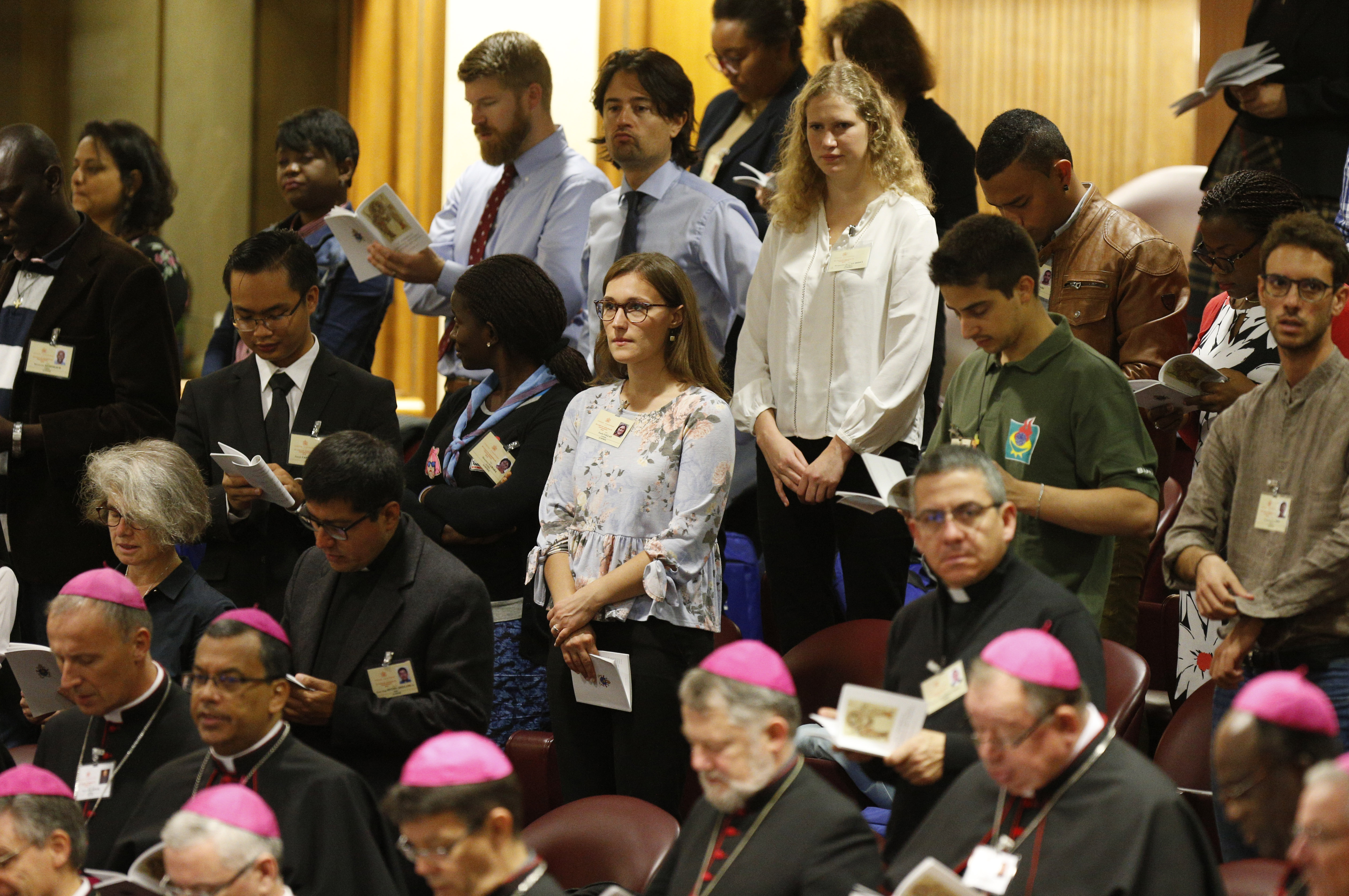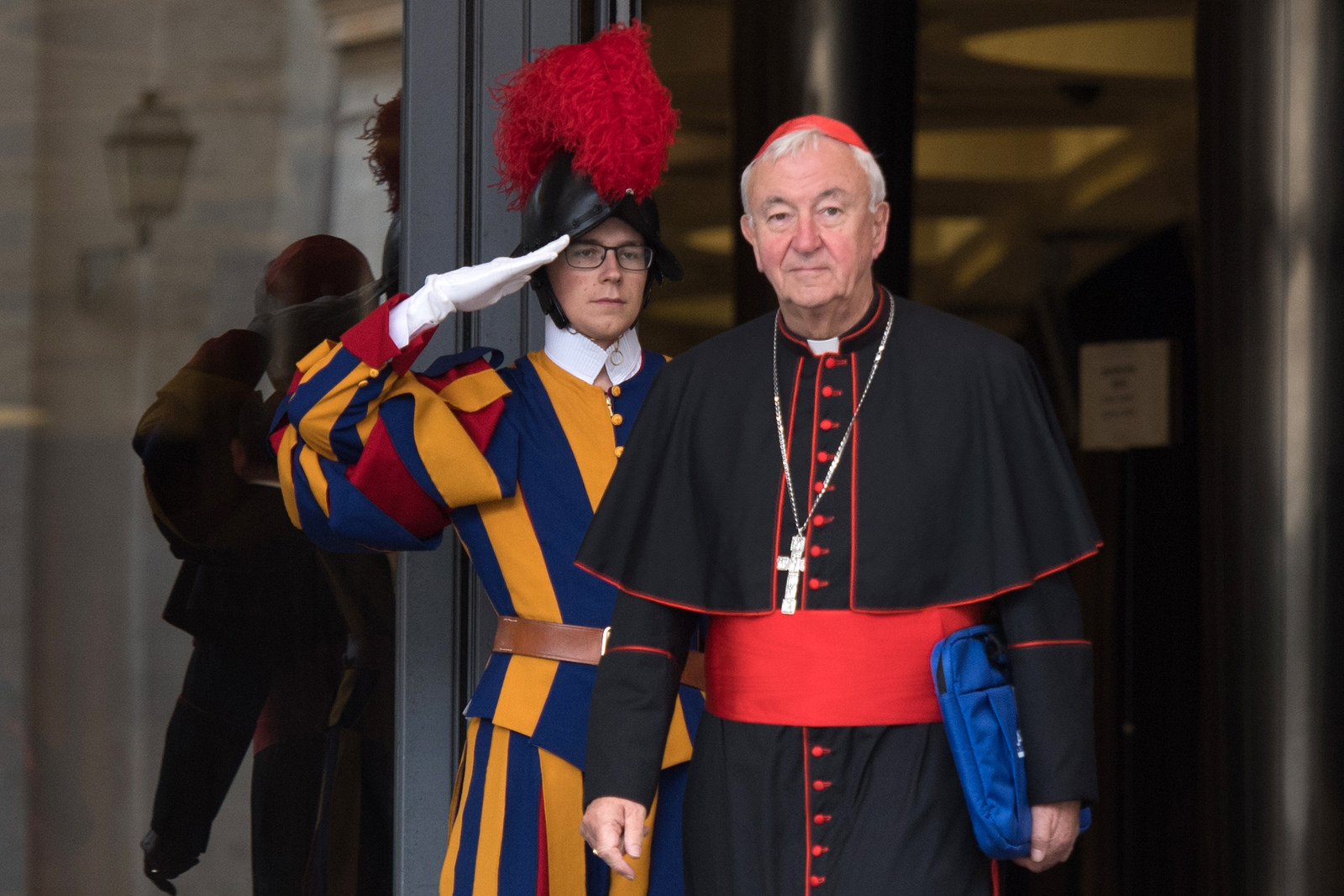The Catholic Church has a “crucial part to play” in the fight against human trafficking, according to the Archbishop of Westminster, Cardinal Vincent Nichols.
In an intervention at the Synod of Bishops in Rome, Cardinal Nichols described how the “crushing poverty” faced by young people in the world and the consequent dangerous journeys they undertake in search of prosperity elsewhere lead to the “horrific” crimes of modern day-slavery and human trafficking.
It is estimated that in the world today there are more than 40 million people held in slavery, the vast majority of those are young people. “This is, in the words of Pope Francis, 'an open wound in the body of humanity', in fact, 'in the body of Christ',” said Cardinal Nichols.
Human trafficking touches everyone, he continued. Every country represented at the synod is a country from which vulnerable people are taken into slavery and into which the victims of human trafficking arrive.
He said he first became aware of this when h listened to a young English woman who was trafficked from England into enforced prostitution in Italy. He also described the case of an Afghan woman held in domestic slavery for 30 years in London, where her one place of privacy was where she slept – under the kitchen table.
“In the fight against human trafficking the Catholic Church has a crucial part to play,” he said. “Human trafficking is a vast, international criminal network. The Catholic Church is a vast, international network committed to all that is good and just. I want to pay tribute, therefore, to all in the Church who help in this struggle, especially many, many religious women who risk their safety to work with the victims of human trafficking.”
The cardinal referred to the Santa Marta Group, which was started by Pope Francis and which Cardinal Nichols himself leads, which brings together the resources of the Catholic Church and the leadership of law enforcement agencies, the police, from many different countries around the world and has the rescuing and support of victims and the prosecution of criminals at its heart. The work of the Santa Marta Group is growing, with a regional conference taking place in Nigeria in November in partnership with Benin’s GrowEdo project, and another in Argentina in February.
“The victim is always at the centre of our efforts. So too are attempts to provide resources and opportunities that might prevent young people leaving their homelands and risking slavery. At present we have projects in education and agriculture in Edo State, in Nigeria,” said the Cardinal. “I hope that this topic of human trafficking, so crucial to millions of young people today, finds its place in our final document and that this important work can go from strength to strength. May St Josephine Bakhita, the young Sudanese woman sold into slavery and now our Patron Saint, pray for us and bring God's blessing on these efforts.”
The cardinal’s “intervento” was well received at the Synod, with the German language group suggesting it be included as a whole in the final Synod document
Meanwhile, a leading advisor to the Santa Marta group called on the UK government to deliver on its promises to victims of human trafficking and slavery.
Speaking ahead of Anti-Slavery Day on 18 October Kevin Hyland OBE, recently appointed Senior Advisor to the Santa Marta Group, warned that the 2015 Modern Slavery Act “is not achieving what we all hoped it would”.
The Santa Marta Group said it was shocked by the impact of the Government’s decision, in March, to cut by 40 per cent the subsistence payments made to victims during their 45-day recovery period in a Government-funded state house.
“A number of support agencies have contacted me saying that it’s got to the point where people can’t even do things like go to church – where they’re used to getting help and support – because they can’t pay for the bus or the train,” said Hyland.
The legislation, which he described as world-leading, could only be considered victim-centred “if properly enacted”.
The Church of England marked Anti-Slavery day with the launch of resources for schools that aimed at encouraging young people “to become courageous advocates” for the end to modern slavery.
The resources include lesson plans for 5-18 year olds and collective worship material.



 Loading ...
Loading ...